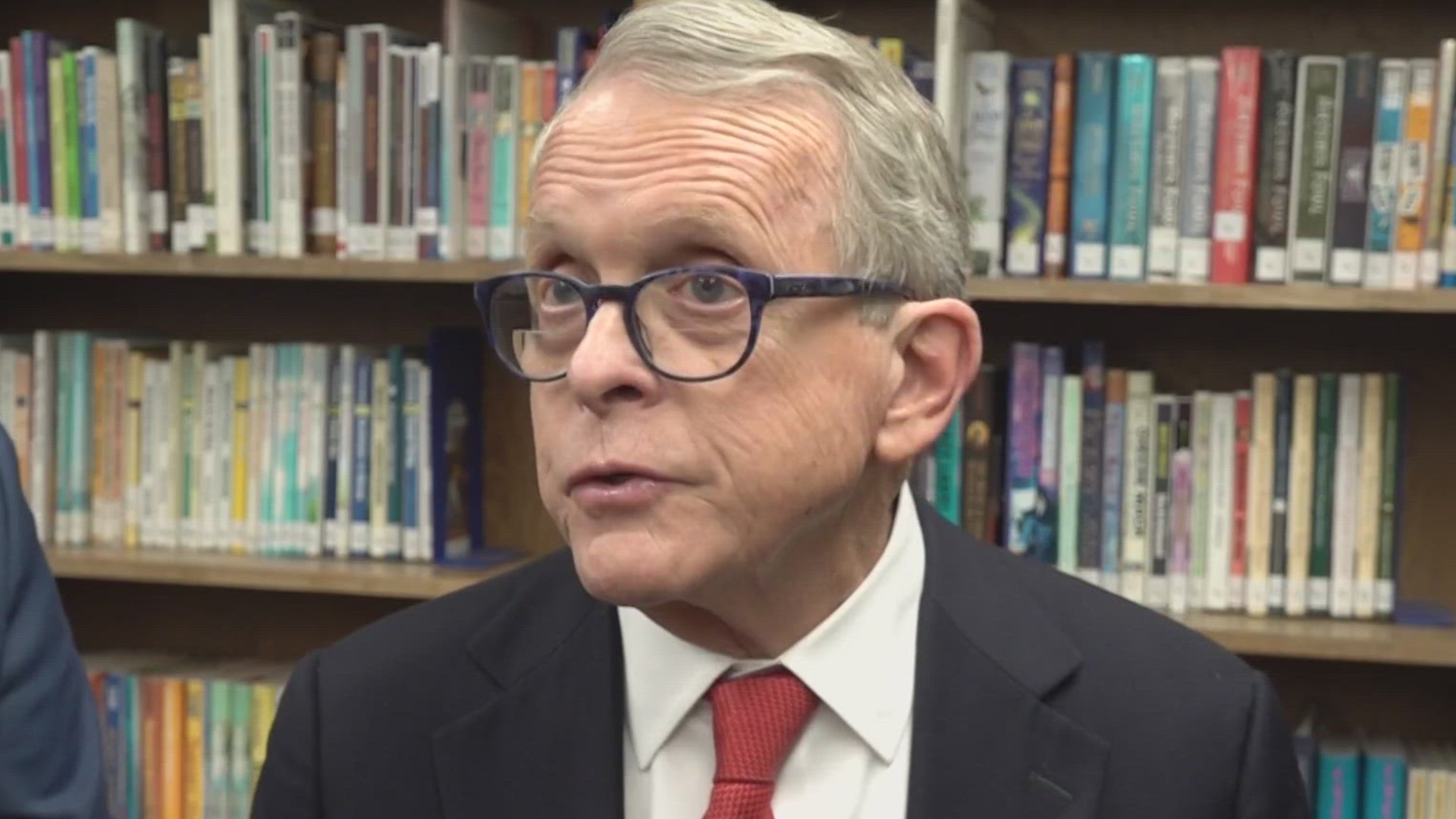TOLEDO, Ohio — Six people are dead at a private school in Nashville, with three adults and three children falling victim to another mass shooting in the U.S.
In the aftermath of deadly mass shootings like this, there's always talk about what needs to happen next.
WTOL 11 got answers from Ohio Gov. Mike DeWine, catching up with the governor Tuesday at an elementary school in Bowling Green and talking solutions to make sure this kind of thing doesn't happen here.
For DeWine, it's personal, on top of his oath to the state. His own grandkids are enrolled in Ohio schools.
To try to keep students safe, the governor has approved almost $200 million in state funding to improve the safety and security of nearly 3,000 Ohio schools.
He said that government teams scour the internet every day looking for threats.
But does he feel it's enough?
"Well we never can do enough.... There's no magic about this, it just takes work, it takes dedication by teachers and administrators," DeWine said. "It's having a plan, it's executing the plan, it's practicing the plan and making sure the building is physically secure."
One of the deadliest mass shootings in Ohio history happened early in DeWine's time as governor. Ten people were killed and 17 injured in Dayton in 2019.
After that, DeWine proposed a 17-point gun control legislation of his own, dubbed the "Strong Ohio" Bill.
The 17-point plan focused on ideas like increasing background checks,
greater penalties for gun crimes and expanding the scope of court-ordered treatment for those deemed to be a danger to themselves.
Despite DeWine calling for increases in red-flag laws right after the shooting, they did not make it into the bill. The legislation died in the Senate.
Since then, DeWine has said very little about gun control, even signing multiple bills into law that decrease gun control such as the revised concealed carry laws.
But with the governor saying the state can never do enough to prevent mass shootings, WTOL 11 asked him if he would consider reviving the "Strong Ohio" bill. He said that even if he wanted to, he would be stonewalled.
"Look, the legislature did not adopt what we asked them to in regard to that (bill). And that's the way the system works," DeWine said. "So what we've done is a number of things that we can do frankly, where we either have an agreement with the legislature or where we don't need the legislature's action. We're going to continue to try everything we can do to keep kids safe. Sending your child or grandchild to school, there's nothing more important than their safety, nothing more important."
DeWine said that out of all the "Strong Ohio" proposals, he hoped the legislature reconsiders approving the idea that people with mental health or addiction problems who have been flagged by their families must go in front of a judge.
So what other proposals does the governor have that he thinks will get past the general assembly?
His answer: increasing school resource officers.
The governor recently spoke about it when he announced this year's budget, saying he's set aside state money to help Ohio schools pay for quality officers from departments in their communities.
He said not only do they increase the safety of the kids, but it also teaches young people to trust police from an early age.
"Establishing a relationship between a police officer and letting these young people see them as a human being, see them every single day, interact with them, I think it's another fringe benefit on top of anything to do with security," said DeWine.
This feeling was echoed by Ohio state representative from Perrysburg and fellow Republican, Haraz Ghanbari, who joined the governor today. Ghanbari called it a proactive approach.
"If you see something, say something," Ghanbari said. "We have a robust network of law enforcement officers in the state of Ohio, where if you report something, it will be investigated."
The governor wants to spend almost $400 million dollars over the next two years to put a school resource officer in every school, calling it an alternative to arming teachers in the classroom.
Critics of the plan, including the ACLU and the Child's Defense Fund of Ohio, say the funding should be more flexible depending on school needs.

